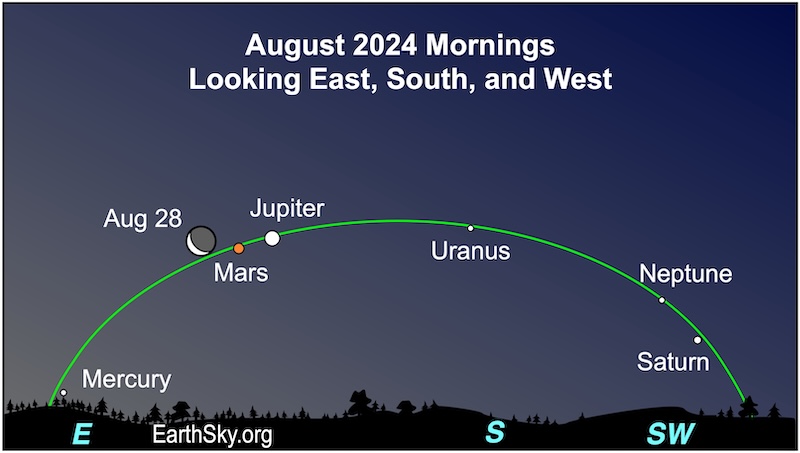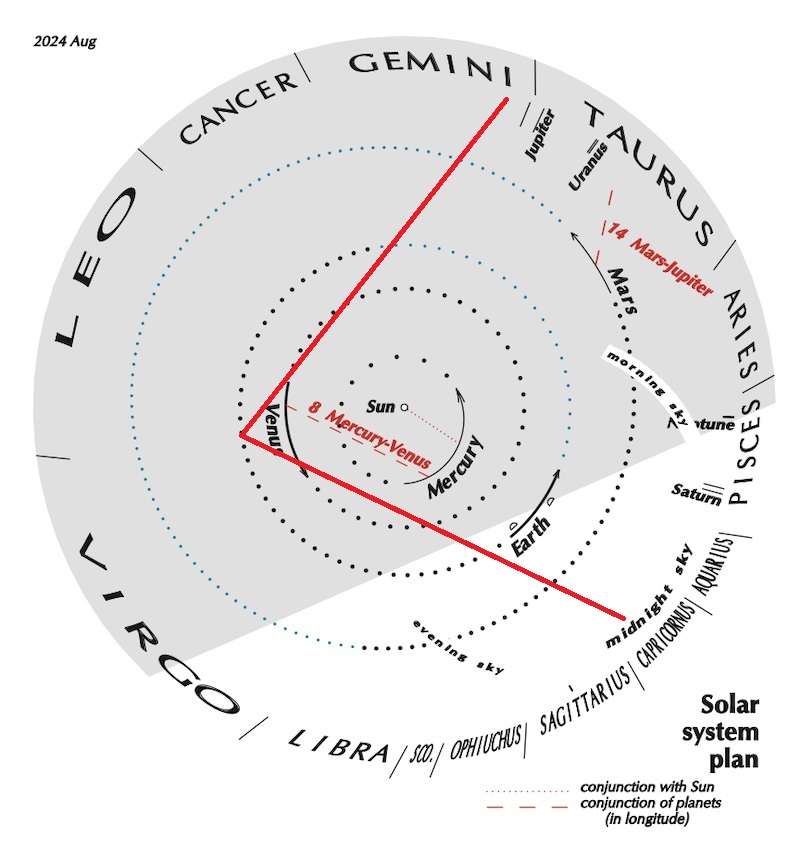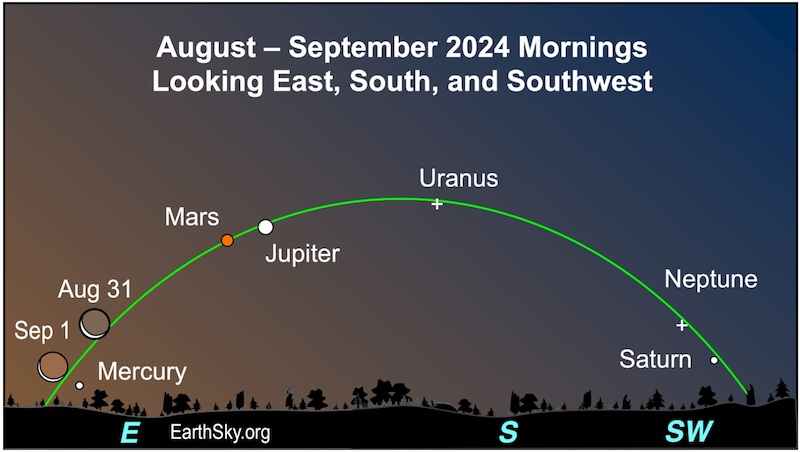
See 6 planets before sunrise
Maybe you’ve already seen Jupiter and Mars in the morning sky? They’re just now coming off their conjunction in mid-August, when these two bright worlds swept close together before dawn. You might have spotted Saturn, too, farther to the west. The ringed planet is nearly at its brightest now, heading for opposition – when Earth will pass between Saturn and the sun – on September 8. Then, in late August, Mercury creeps away from the sun. So you might catch a glimpse of it before sunrise, too. With dim Uranus and Neptune between Jupiter and Saturn, that makes six planets in the morning sky. Can you challenge yourself to spot them all?

Here’s how to see the 6 planets
At the end of August, Jupiter and Mars are in Taurus, coming off their big conjunction on the 14th. Mars is headed out of Taurus toward Gemini, which it will cross into during early September. On August 27, a waning gibbous moon was near Jupiter. By the next morning, the thinning moon had jumped ahead of Mars.
Then, by September 1, the super-slender, old waning crescent moon will help you find Mercury. On that date, the closest planet to the sun will appear beside the moon in Leo the Lion.
From then on, the moon will be out of the scene. On September 9, Mercury will be less than a degree from Regulus, the brightest star in Leo.
Saturn is easy to spot. The ringed planet is in the constellation Aquarius in the western sky. The next two are a bit of a challenge.
Watch a 1-minute preview video of the 6 planets in the morning sky.
Uranus and Neptune
Neptune is somewhat close to Saturn. While the sky is still dark, look for the Circlet of Pisces standing above Saturn near the western horizon. Neptune is next to the Circlet. You’ll want optical aid – binoculars or a telescope – and a star chart. For a precise view from your location to aid in hunting down Neptune, try Stellarium.
Uranus is a bit brighter than Neptune, but still a test of your observing skills. Did you spot it next to Mars back on July 15? Then you know what you’re looking for! If not, it might appear as a bluish-green disk when you finally find it with optical aid. Uranus is currently in Taurus. It’s a bit more than five degrees, or three fingers held at arm’s length, from the Pleiades star cluster. You’ll also want to use Stellarium to help track it down.
Late August chart

Bottom line: Do you want to see 6 planets at once? Wake up before sunrise and start hunting! Mars, Jupiter and Saturn will be easy. The moon might help you find Mercury. Uranus and Neptune will test your observing powers. Challenge yourself: you can do it!











